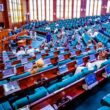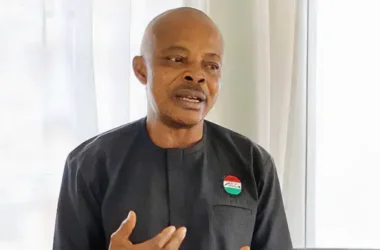The Federal Government of Nigeria has announced that citizens must present their National Identification Number (NIN) to purchase a 50kg bag of rice at a subsidized price of ₦40,000. This initiative aims to make food more affordable for Nigerians amid the ongoing food crisis.
During the official launch of the program, President Bola Tinubu, represented by the Minister of Agriculture and Food Security, Abubakar Kyari, outlined the details of the rice distribution plan. He stated that the government would sell 30,000 metric tonnes of milled rice to Nigerians at the reduced rate, strictly enforcing a “one person, one bag” policy.
“This food intervention can be said to be timely considering the times and challenges we are in as citizens of this great nation,” Kyari noted, emphasizing the government’s commitment to alleviating the high cost of food in the country. He also highlighted other government efforts, such as the release of 42,000 metric tonnes of assorted food commodities to vulnerable groups.
Kyari explained that to ensure transparency and prevent abuse of the system, a government task force would oversee the distribution process. Buyers will be required to present their NIN and phone number at the point of sale to confirm their eligibility, and measures are in place to prevent anyone from purchasing more than one bag.
Haruna Sule, Director of Strategic Grains Reserve at the Ministry of Agriculture, elaborated on the purchasing procedure, stating that civil servants could use their Integrated Payroll and Personnel Information System (IPPIS) details at designated sales points. At these points, officials will verify the buyer’s NIN and issue a code number and a Treasury receipt, which must be presented at a separate collection center to receive the rice.
“To qualify for the one person, one bag, you must have a National Identification Number,” Sule explained. “Once you have this, a code number and a Treasury receipt will be generated at the point of sale. The receipt will indicate the time and place of collection to avoid crowding.”
The government initially announced the sale of subsidized rice in July, but the plan was temporarily suspended without explanation. With this relaunch, the government aims to provide relief to Nigerians by not only reducing the price of rice but also potentially lowering the cost of other staple foods.









